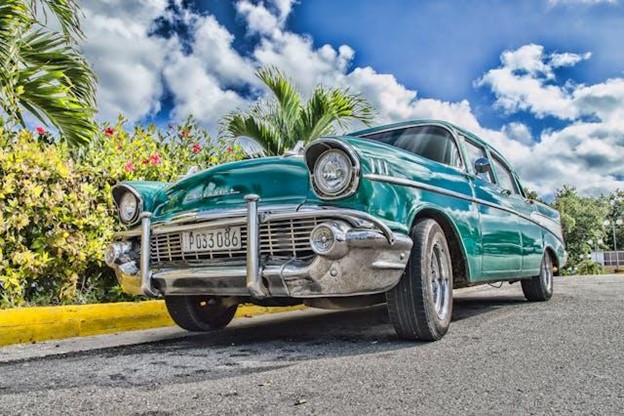My blog focuses on Financial Literacy/Money and Technology. A classic car can be a lucrative item and if you inherit one, you now have several decisions to make. The following contributed post is entitled, Inheriting a Classic Car: The Steps to Take Next.
* * *
Most people receive an inheritance in the form of property or cash, but it’s also possible to inherit a luxury item, such as a classic car. And in fact, it’s more common than you might think. Some 16% of the country’s 275 million registered vehicles fit the ‘classic car’ criteria, which means there’s around 6 million classic cars across the United States. With many owners of classic cars falling into an older age bracket, it is not so surprising that classic cars are often included in a person’s will.
While inheriting a classic car can seem pretty cool, the reality doesn’t always match expectations. The experience mostly comes down to the state of the vehicle and whether the person receiving the classic car has an interest in cars in the first place.
However, whatever the circumstances, there’ll be options. In this post, we’ll run through a few key steps that’ll make managing the vehicle more straightforward and make it easier to decide what you should ultimately do with the classic car.

Transferring the Vehicle
In some cases, inheriting a classic car will be as simple as receiving the keys during probate, starting up the engine, and driving the car home. But those instances are rare. If you live on the other side of the country from where the car is located, or if the car is not roadworthy, then that won’t be an option. If the car is roadworthy but distant, you could consider taking a long road trip, but keep in mind that older vehicles are more prone to experiencing issues. For both of those scenarios, it’s worthwhile using a car transporting service to safely transport the vehicle to your property or storage unit until you decide what to do.
Make the Vehicle Yours — Or Sell It
Now that you have the vehicle, it’ll be time to choose between keeping the vehicle or selling it. That decision will be impacted by a few key considerations, such as the state of the vehicle, whether you can realistically see yourself driving it, and whether there’s any sentimental attachment. During the decision process, it’s recommended to use a car valuation service to get an estimate for the vehicle’s potential sale price. Not only will this help you to make an informed decision, but it will also provide a starting point for how to price the vehicle should you decide to sell.
When In Doubt, Take Your Time
Unless you’re short of cash and need to make a quick sale, it’s recommended to take your time before deciding whether to keep or sell the vehicle. You won’t regret holding onto the vehicle for a little longer until you’re sure you’ve made the right decision, but you might regret it if you sell the car before you’re fully set on the idea. While it might be possible to buy the vehicle back in the future, there are no guarantees, so it’s best to work under the assumption that any sales are final. Remember, you can always sell the car in the future if you decide to keep it!
